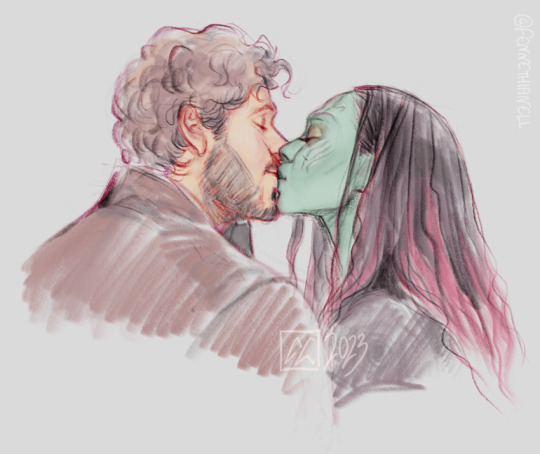#I just couldn't. stop. thinking about it
Text
Womanhood as a prison in Natasha Pulley novels
I know that a great deal has already been said about Natasha Pulley’s portrayal of female characters, because even her most ardent fans (and I count myself among them) are often highly critical of how women are written in her stories - or, more aptly, written out of them.
But I think there is more to be said about how not only female characters are presented, but how the very concept of femininity is portrayed, via both the characters’ dialogue and inner thoughts. This analysis will reference all of Pulley’s books with the exception of The Bedlam Stacks. I’m excluding it on the grounds of it having little to no major female characters, but if any Bedlam superfans have any insight to add, please do reblog and contribute.
One of the main criticisms of Pulley’s women is their overarching similarity, so let’s briefly consider those commonalities. They are mostly educated, career-driven scientists (Grace is a budding physicist, Agatha a surgeon, Anna a much more experienced physicist). They are usually unnattractive by conventional standards; Grace is described as looking ‘like a boy’, Pepperharrow refers to herself as being ugly, Agatha is ‘tall and flat-chested’, and Anna’s introduction mentions that she has a ‘blonde buzz cut’ and is somewhat overweight.
They are also generally emotionally cold and poor caretakers, especially in contrast to the male characters. Joe’s wife, Alice, is noted to resent their daughter and engage with her far less than he does. Similarly, Shenkov is significantly more child-orientated than Anna. Agatha forces Missouri to watch a man having his throat cut, because she believes him too gentle for war. Said female characters may also show distaste for softer, more vulnerable women. Takiko Pepperharrow speaks of her mother like this (The Lost Future of Pepperharrow, p. 72):
Saying yes and simpering all the time was silly - her mother did that and even noticeably anxious ducklings walked over her mother
She isn’t the only person to speak of her mother with a degree of pity and distaste. Grace claims that to argue with her own mother feels like ‘slapping a kitten’ - Mrs Carrow is presented as too meek to understand her own powerlessness, to the point that she considers it an achievement to leave the house alone. In the epilogue of The Half Life of Valery K, Valery himself describes the pitiable housewife Cecilia as being ‘just as stunted as his own mother’. Similarly to Mrs Carrow, the aforementioned Cecilia is not presented as fully aware of how small and restricted her life is - her happiness rests on the outcome of a dinner party, nothing larger than that.
The common thread between these pitiable characters is that they embody traditional womanhood - they are married, they are subservient to their husbands, and they have children. Perhaps the most notable - and interesting - trend amongst Pulley’s female charcters is that they invariably have a complicated relationship with marriage, caretaking, and/or childbearing.
Pulley’s novels frequently frame motherhood (along with other traditionally feminine pursuits and behaviours) as an obstacle to the female characters’ goals. In conversation with her mother, Grace talks about the prospect of marriage in the following way (The Watchmaker of Filigree Street, p. 102):
“Wives have duties. If I have children I’ll go insane for a year and a half - don’t look like that, you did, with James and with William, it was terrifying - and that will be a year and a half of weeping over nothing and a brain made of soup in which I can’t work. And then it will happen again with the next child, and then slowly I won’t want to work at all, and I’ll always be soup...”
In Grace’s mind, having children is a barrier to her academic pursuits. She is fiercely certain that giving birth will not only reduce her brain to ‘soup’, but that the impact will be permanent - she will lose herself to motherhood, and it will take away her drive and her intellect. Similar sentiments can be found among other female characters, such as when Takiko observes the following (The Lost Future of Pepperharrow, p. 175):
All her sisters had had children, and all she’d learned from it was that people with children turned inward. She didn’t see any of them anymore.
Once again, there is the sense that motherhood steals from women. It takes them away from themselves by turning them inward, and also from other people in that they lose contact with family members. The Half Life of Valery K foregrounds Anna’s perspective on motherhood (p. 137), which is probably the most extreme of all:
..she had told him straight up when they got married that she wasn’t a natural mother, that she didn’t do well with small helpless things, because she had been trained to care about electron microscopes, thanks, and obviously she would gestate him a small helpless thing to look after if he wanted [...] but there would be no talk of staying home, nesting, or maternal fussing, because frankly that was nothing but weakness of character in a woman...
A significant part of this passage is the notion that Anna is not a natural mother because she has ‘been trained to care about electron microscopes’. Not only does this again put scientific pursuits and childrearing in opposition (you may care for one, not both), the verb ‘trained’ suggests that this behaviour is learned, as though she has been educated out of maternal desires.
At this point in the analysis, I would like to specify that discussing these ideas in fiction is not inherently problematic or anti-feminist. It is vitally important for women to be free to reject motherhood, and by extension it is good to see female characters who are unapologetically unmaternal and unfeminine. When I first read The Watchmaker of Filigree Street, I adored Grace’s character for this - I loved her arrogance, her stubbornness, her distaste for marriage, her coarseness. Even the fact that she looked down on other women made her fascinating to me, because we just don’t see a lot of multi-faceted female characters who act in this way. She was complex and interesting without being a Strong Female Character™ to look up to - she was allowed to be wrong and wildly dislikable.
Where I take issue, however, is the fact that we have never seen an alternative to Grace in all five of Natasha Pulley’s novels. She is yet to write a significant female character who is complex and important despite being more traditionally feminine - there are no women who are scientists and dedicated mothers, who are career-minded and gentle, who are fiercely independent and hopeless romantics. It is one thing for Grace and other characters to disparage the poor, oppressed housewives in their society, but it is another thing entirely for the narrative itself to disparage these women. A woman without an education is still a fully-realised person with her own internal life. Women who cannot attain much agency are still as complex as those who can, yet Pulley’s stories never quite acknowledge this.
Which leads me onto the overarching portrayal of womanhood in Pulley’s novels. I’ve always been hesitant to assume too much based on singular characters, as I do think it’s imporant to recognise that a character’s perspective is not a proxy for the author’s. But after five books, the patterns are undeniable, and I think they’re more marked in The Half Life of Valery K than they ever have been. Consider the quotation below, taken from p. 30:
[Valery] never knew what to say when women pointed out that they were women and that it was, generally, awful. There was a knee-jerk human instinct to say it couldn’t be as bad as all that, like he would have to anyone who was feeling blue, but it was one of those instances where it really was awful, and trying to say it wasn’t was somewhere on the spectrum between stupid and criminal.
Valery offers an invariably bleak perspective on womanhood, which is in keeping with the attitudes of the female characters in Pulley’s books. Not only is womanhood described as miserable - Valery also claims that to deny the truth of this is either ‘stupid or criminal’. There is no space to take a more positive view on femininity.
Being charitable, we could view this as a (heavy-handed) condemnation of sexism and patriarchy, and I do think that this is Pulley’s intention. But it’s worth considering that she does not discuss other marginalisation in this way. Despite the homophobia her numerous queer protagonists face, nobody goes on a similar tirade about the misery of being a man who loves other men. The trials and struggles are acknowledged, but queer love is still rightfully shown to be beautiful and privately joyous - in a way that being a woman never is.
Instead, womanhood in Pulley’s novels is oppressive and inescapable. Even a young girl’s fingernails cannot be neutral - they too represent the trappings of patriarchy (The Half Life of Valery K, p. 274):
“I can’t do it,” Tatiana said to her own laces. She studied her fingernails. “My tools of the patriarchy are getting too long.”
(This is an utterly bizarre thing for a little kid to say, by the way).
Towards the end of the novel, a carriage full of female prisoners is set upon by male ones, which is portrayed almost as an inevitablitity - we do not get a scene of exactly what happens, because the outcome is obvious enough to be implied. This outlook on the inevitability of violence against women is never challenged at any point; Valery only emphasises it in the final pages of the novel (p. 369):
every doctor he worked with and laughed with in tea breaks probably had an identical wife, all of them keeping women like bonsai trees
The messaging across Pulley’s novels is that of womanhood as a prison. There is little to no joy to be found in it; it results in confinement, loss of the self, isolation from others, and exposure to physical and emotional violence. Women who ‘succumb’ to marriage and children are given little voice in her stories - they are pitiable, ‘identical’ lost causes, called ‘stunted’, compared to kittens and bonsai trees. The only female POVs are that of women rebelling against conventional femininity, who are ambivalent or outwardly resentful towards caretaking, childrearing, and reliance on others. And even these women do not get to take up a great deal of space; all of them serve as obstacles to the central romances and all of them are written out to secure the male characters’ happily ever afters.
I do not believe that Natasha Pulley has malicious intent in how she writes female characters. It is important to address misogynistic violence and the ways in which the institution of marriage has restricted and oppressed women, and I believe she does try to do that. But there are ways to explore this issue whilst still acknowleding the variety of women’s experiences - and, crucially, showing that there is more to femininity than suffering.
But it requires time and space. Natasha Pulley has no hope of doing this if she does not start deviating from her usual archetypes - her stories need a better quality and quantity of women. While I live in hope of improvements to her female representation, I would be lying if I said I was optimistic.
#natasha pulley#the watchmaker of filigree street#the half life of valery k#the kingdoms#the lost future of pepperharrow#i wrote this instead of doing my actual job this afternoon#I just couldn't. stop. thinking about it#my friend finished reading the kingdoms yesterday and we ended up talking about the huge Weirdness of her female rep#and the more I looked back over valery k the more i think that book has such a STRANGE presentation of women and gender as a whole#the fact that it almost tries to pass itself off as feminist (in such a heavy handed way too!) while shafting the female characters is just#not good chief#long post
209 notes
·
View notes
Note
*you opening the love letter* what does your damijon look like, pls pls pls pls pls pls pls, i know it would be so cute, i just know it 🙏🙏🙏
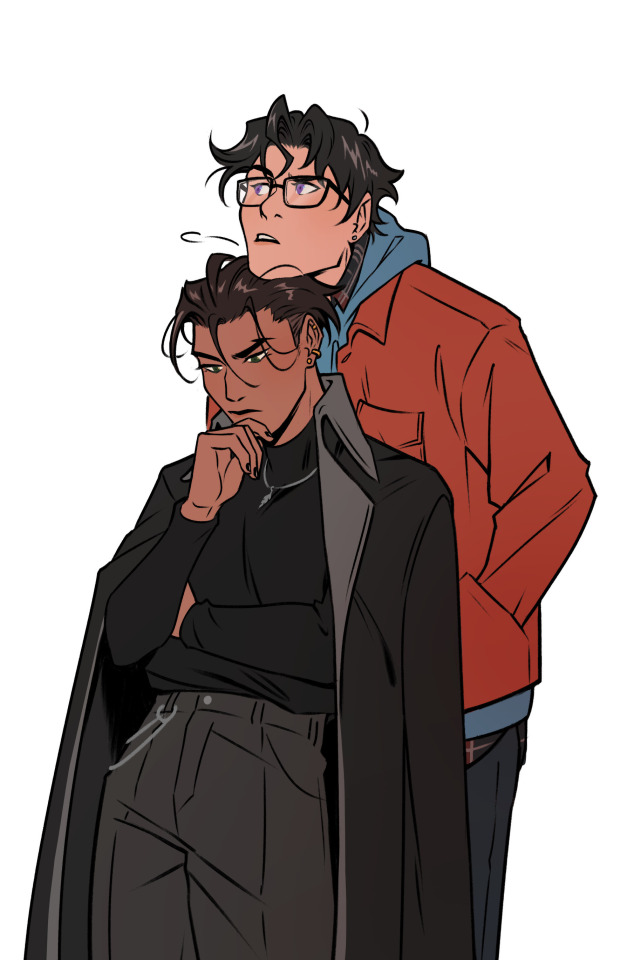
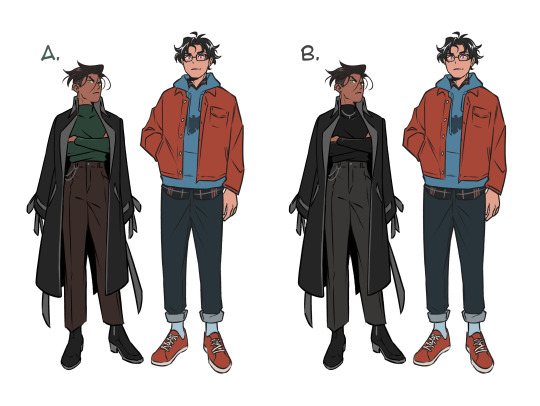
here you go! thank you for the ask, this was a lot of fun to do! they're working on a case together ^^
#ask#super sons#jondami#damian wayne#jon kent#batbabyart#after getting this ask i couldn't stop thinking about older Damian outfits 😭#just based on comic artists throughout the years Damian's got a fairly decent range of style it was hard to choose but v fun!!#Jon's wearing a bunch of layers to cover up bulk while Damian's layering to give off more bulk LOL#i decided to lean a bit into Cizmesija's recent look for him and contrast Jon's more colorful casual wear#didn't want tooo much Batman 666 vibes so i tried giving Damian another color option thru A but i still liked B more lol#also every time i draw older Damian his hair keeps changing sdfgh that one poll apparently did not help me decide haha
10K notes
·
View notes
Text
one of my favourite things about AO3 tags is their dedication to canon accuracy, even when that means it devolves into complete mayhem like

Percy was not named with a fan following in mind, this was clearly a running gag but it's his name so they have to use all of it
#adding the 'percy' in there is just adding insult to injury tho#i'm sorry this is so funny to look at#and yes i do think the joke is hilarious actually. aristocracy names are the funniest thing in the world#ao3#(on that note tho dear anglophones please stop capitalising the 'von' in titles)#(taliesin gets a pass because he couldn't have known how much this would blow up it was a home game but. psa i guess)#(today seems to be my 'be pissy about ways to get (pseudo-) german names wrong' day idk)#vox machina#critical role#percival de rolo#(the joke is funny but i will not bother i'm sorry)
1K notes
·
View notes
Text
"Kuina's death is ridiculous" yes! That's the point! You do realize that falling down the stairs is a way of showing Zoro how fragile human lives are, right? You are aware that the point of Kuina's character is the unfairness of the world towards women in comparison to the privileges men have, like living in itself and fulfilling their dreams, right? You know that Kuina's death is "ridiculous and dumb" because it's meant to show that even the strongest person Zoro knew could die from something so little, right? You understand that the value Zoro gives to life is fucking immense, right? Right?? You realize Zoro can't seek revenge because nobody took her away from him and now the only thing he can do is become the world's greatest swordsman to avenge her death, right? You get that Zoro's character is an atheist because he doesn't believe in anyone and he can only rely on himself when it comes to Kuina's sudden death, right? You are aware that sometimes people die in the simplest of ways and that doesn't make them weak because death doesn't discriminate, right? You know that all of these things are what make Zoro's character so interesting and important, right? Right??? You know, right?
Well, of course you fucking don't because if you knew you wouldn't be saying her death is ridiculous <3
#if i see somebody else complaining about this i am going to throw hands i swear to god#sorry i just saw a bad take in here and i couldn't stay quiet#it's the most basic thing about zoro's character why are people complaining#'his backstory is boring' well i think YOU are boring and also don't have good taste#i am a zoro defender for life and his backstory with kuina is amazing shutupshutup#stop trying to find a weird dark theory abt her death. you won't find anything. that's just it. she died.#she fell down the stairs and died and it's a great story let kuina rest in peace#one piece#roronoa zoro#shimotsuki kuina
2K notes
·
View notes
Text
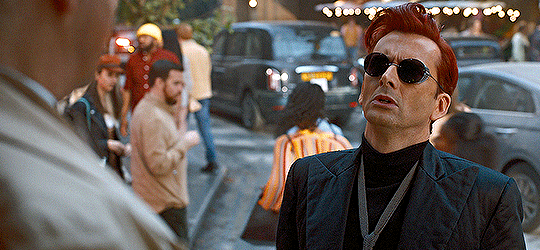


You can't leave-
I need you
middle transition insp
#good omens#goodomensedit#goodomensgifs#ineffable husbands#crowley#aziraphale#aziraphale x crowley#crowley x aziraphale#azicrow#go spoilers#gos2spoilers#good omens spoilers#good omens 2#my go#my gifs#yes the middle gif is what started this all#i just couldn't stop thinking about it since i saw that tiktok#*gom
2K notes
·
View notes
Text
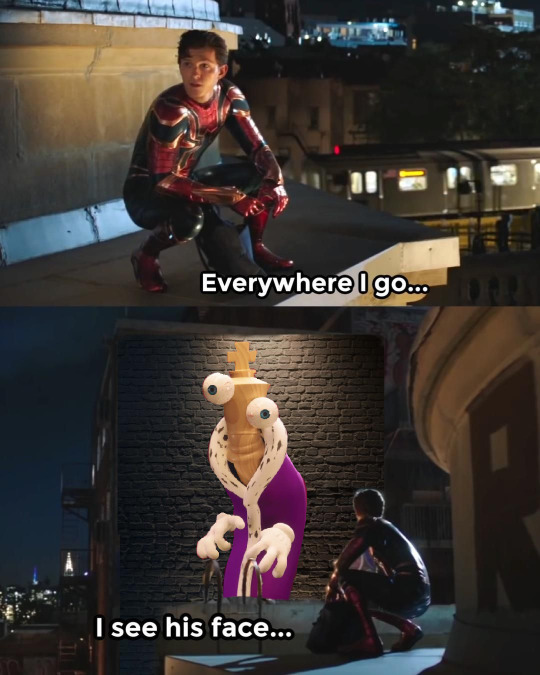
@putting-kinger-in-places
#the amazing digital circus#tadc#tadc kinger#kinger#gooseworx#i hope i'm not annoying you by mentioning you i just made this in the middle of the night bc i couldn't stop thinking about it
2K notes
·
View notes
Text
God it must be so scary for Kristen to have Bobby Dawn as a teacher. Not only is he a major leader from a dangerous cult that she only escaped from recently, he's occupying a position of authority and power over her specifically in becoming the cleric teacher. Even though Kristen didn't know Yolanda very well, she still knew she could trust her and bring her questions about Lucy and Ruvina. But Bobby Dawn actively has both a grudge against her and an agenda to convert the students- who are supposed to be under his neutral care. This is kinda rambly but I just can't stop thinking about how scared I would be and how I'm glad Kristen has a good network of adults she can trust.
#dimension 20#fantasy high#fhjy#fantasy high spoilers#kristen applebees#bobby dawn#fhjy spoilers#sorry for the long post i just couldn't stop thinking about this#you're too loud al
509 notes
·
View notes
Text
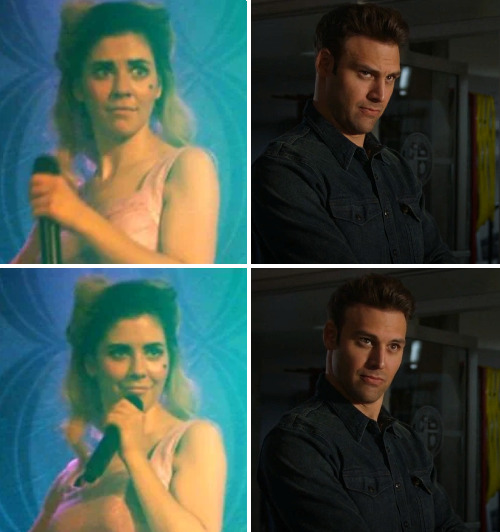
you all know the drill, corporate needs you to find the difference between these two pictures 🤣🤣🤣
#9-1-1#911 spoilers#eddie diaz#buddie#(yes this goes in the tag because I am OBSESSED with the way eddie's entire body language changes at the revelation that buck is single#again like HELLO AND WHAT THE FUCK I know everyone has been freaking out over it but I am very much still stuck in this single frame)#because funstuff#I'm sorry this is not my best work but I couldn't stop thinking about this every since I first saw eddie's face like that last night and#this meme immediately popped into my head#I just had to wait until now to actually grab screenshots xD
502 notes
·
View notes
Text
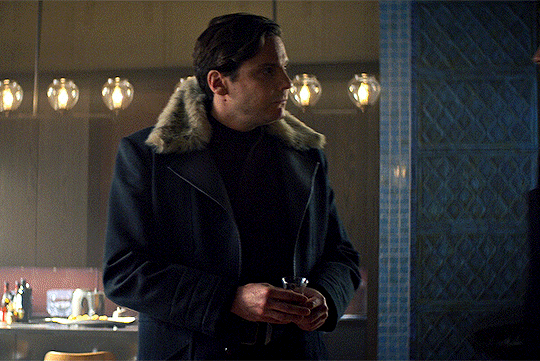
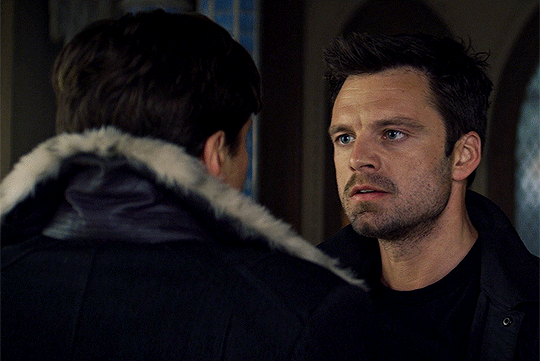


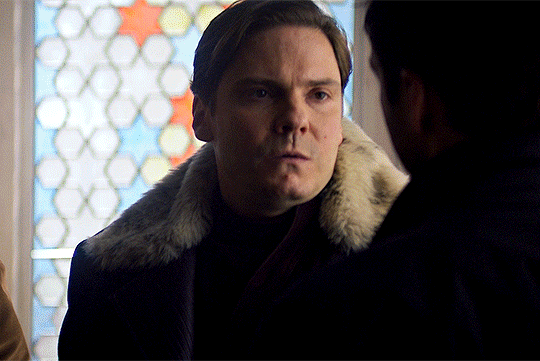


#how to get pregnant
#bucky barnes#helmut zemo#sebstanedit#danielbruhledit#tfatws#marveledit#mcucast#dailyavengers#mcufam#dailymarvelgifs#userashe#usersvenja#unearthlydust#usertammy#sebastian stan#daniel brühl#gif#i couldn't stop thinking about this#also the head tilt i just yeeped
1K notes
·
View notes
Text
i need to get this out of my head before i continue clone^2 but danny being the first batkid. Like, standard procedure stuff: his parents and sister die, danny ends up with Vlad Masters. He drags him along to stereotypical galas and stuff; Danny is not having a good time.
He ends up going to one of the Wayne Galas being hosted ever since elusive Bruce Wayne has returned to Gotham. Vlad is crowing about having this opportunity as he's been wanting to sink his claws into the company for a long while now. Danny is too busy grieving to care what he wants.
And like most Galas, once Vlad is done showing him off to the other socialites and the like, he disappears. Off to a dark corner, or to one of the many balconies; doesn't matter. There he runs into said star of the show, Bruce who is still young, has been Batman for at least a year at this point, but still getting used to all these damn people and socializing. He's stepped off to hide for a few minutes before stepping back into the shark tank.
And he runs into a kid with circles under his eyes and a dull gleam in them. Familiar, like looking into a mirror.
Danny tries to excuse himself, he hasn't stopped crying since his parents died and it's been months. He rubs his eyes and stands up, and stumbles over a half-hearted apology to Mister Wayne. Some of Vlad's etiquette lessons kicking in.
Bruce is awkward, but he softens. "That's alright, lad," he says, pulling up some of that Brucie Wayne confidence, "I was just coming out here to get some fresh air."
There's a little pressing; Bruce asks who he's here with, Danny says, voice quiet and grief-stricken, that he's with his godfather Vlad Masters. Bruce asks him if he knows where he is, and Danny tells him he does. Bruce offers to leave, Danny tells him to do whatever he wants.
It ends with Bruce staying, standing off to the side with Danny in silence. Neither of them say a word, and Danny eventually leaves first in that same silence.
Bruce looks into Vlad Masters after everything is over, his interest piqued. He finds news about him taking in Danny Fenton: he looks into Danny Fenton. He finds news articles about his parents' deaths, their occupations, everything he can get his hands on.
At the next gala, he sees Danny again. And he looks the same as ever: quiet like a ghost, just as pale, and full of grief. Bruce sits in silence with him again for nearly ten minutes before he strikes a conversation.
"Do you like to do anything?"
Nothing. Just silence.
Bruce isn't quite sure what to do: comfort is not his forte, and Danny doesn't know him. He's smart enough to know that. So he starts talking about other things; anything he can think of that Brucie Wayne might say, that also wasn't inappropriate for a kid to hear.
Danny says nothing the entire time, and is again the first to leave.
Bruce watches from a distance as he intercts with Vlad Masters; how Vlad Masters interacts with him. He doesn't like what he sees: Vlad Masters keeps a hand on Danny's shoulder like one would hold onto the collar of a dog. He parades him around like a trophy he won.
And there are moments, when someone gets too close or when someone tries to shake Danny's hand, of deep possessiveness that flints over Vlad Masters' eyes. Like a dragon guarding a horde.
He plays the act of doting godfather well: but Bruce knows a liar when he sees one. Like recognizes like.
Danny is dull-eyed and blank faced the entire time; he looks miserable.
So Bruce tries to host more parties; if only so that he can talk to Danny alone. Vlad seems all too happy to attend, toting Danny along like a ribbon, and on the dot every hour, Danny slips away to somewhere to hide. Bruce appears twenty minutes later.
"I was looking into your godfather's company," he says one night, trying to think of more things to say. Some nights all they do is sit in silence. "Some of my shareholders were thinking of partnering up--"
"Don't."
He stops. Danny hardly says a word to him, he doesn't even look at him -- he's sitting on the ground, his head in his knees. Like he's trying to hide from the world. But he's looking, blue eyes piercing up at Bruce.
Bruce tilts his head, practiced puppy-like. "Pardon?"
"Don't." Danny says, strongly. "Don't make any deals with Vlad."
It's the most words Danny's spoken to him, and there's a look in his eyes like a candle finding its spark. Something hard. Bruce presses further, "And why is that?"
The spark flutters, and flushes out. Danny blinks like he's coming out of a trance, and slumps back into himself. "Just don't."
Bruce stares at him, thoughtful, before looking away. "Alright. I won't."
And they fall back into silence.
Danny, when he leaves, turns to look at Bruce, "I mean it." He says; soft like he's telling a secret, "Don't make any deals with him. Don't be alone with him. Don't work with him."
He's scampered away before Bruce can question him further.
(He never planned on working with Vlad Masters and his company; he's done his research. He's seen the misfortune. But nothing ever leads back to him. There's no evidence of anything. But Danny knows something.)
At their next meeting, Danny starts the conversation. It's new, and it's welcomed. He says, cutting through their five minute quiet, that he likes stars. And he doesn't like that he can't see them in Gotham.
Bruce hums in interest, and Danny continues talking. It's as if floodgates had been opened, and as Bruce takes a sip of his wine, it tastes like victory.
("Tucker told me once--")
("Tucker?")
("Oh-- uh, one of my best friends. He's a tech geek. We haven't talked in a while.")
(Danny shut down in his grief -- his friends are worried, but can't reach him. When he goes back to the manor with Vlad, he fishes out his phone and sends them a message.)
(They are ecstatic to hear from him.)
It all culminates until one day, when Danny is leaving to go back inside, that Bruce speaks up. "You know," He says, leaning against the railing. "The manor has many rooms; plenty of space for a guest."
The implication there, hidden between the lines. And Danny is smart, he looks at Bruce with a sharp glean in his eyes, and he nods. "Good to know."
The next time they see each other, Danny has something in his hands. "Can you hold onto something for me?" He asks.
When Bruce agrees, Danny places a pearl into his palm. or, at least, it's something that looks like a pearl. Because it's cold to the touch; sinking into Bruce's white silk gloves with ease and shimmering like an opal. It moves a little as it settles into his hand, and the moves like its full of liquid.
Bruce has never seen anything like it before, but he does know this; it's not human. "What is it?" He asks, and Danny looks uncomfortable.
"I can't tell you that." He says, shifting on his foot like he's scared of someone seeing it. "But please be careful with it. Treat it like it's extremely fragile."
When Bruce gets home, he puts it in an empty ring box and hides the box in the cave. He tries researching into what it is. he can't find anything concrete.
Everything comes to a head one day when Danny appears at the manor's doorstep one evening, soaking wet in the rain, and bleeding from the side.
#dpxdc#dp x dc#danny fenton is not the ghost king#dpxdc crossover#dpdc#dp x dc crossover#dpxdc prompt#man i just really need more dpdc stuff where danny and bruce have a good relationship. like man i NEED it. like i need to see these two#bonding together. and not in a cracky 'oh danny is a distant friend/cousin/etc' stuff but like. active participants in each other's lives#or as active as can be in this case. i neeeeed these two getting along and caring about one another#this idea came to me like last night and hasn't left since nd it was driving me up the wall to think about both positively and negatively b#i neeeded someone to hear about this or i was gonna implode#danny is the first son#tried to just get the general gist of the idea down but i definitely thought of the idea that bruce lowkey suspects vlad for having a hand#Vlad allows Danny to sneak off because he thinks Danny is alone. if he knew Bruce was there he'd be piiisssed and would put a stop to it#Sam and Tucker are alive they just got ghosted for a bit by danny bc he was in Major Grief and didn't wanna socialize. He couldn't go to#them because he didn't wanna put them in danger via Vlad.#oh that thing he handed Bruce? Yeah that's his ghost core. I have a headcanon (that isnt always applied) that ghosts can take their cores#out of their bodies at will and painlessly and without issue. and its common practice actually to do so bc they can be a not insignificant#distance away from said core before problems start to act up. and its common for ghosts to leave their physical cores at their lairs for#safekeeping because as long as the physical core is fine: so is the ghost. they can reform if their body gets destroyed. it also acts as a#fast travel sometimes. where they can reform at their core in an instant. its not inspired in the slightest by SU but i do see the overlap#most cores are pretty small for safety sake: its harder to hit if its small. and they're pr resilient too but its better to be safe than#sorry. so yeah. danny essentially gave bruce the physical embodiment of his soul and indirectly said#'if anything happens to me at least i'll be safe with you'#danny doesn't know he's batman btw#starry rambles.#was gonna go into danny becoming a vigilante beside bruce but im sleeeepy so i'll do that in a reblog. he's gonna go by nightingale if#anyone is interested. stereotypical but to be frank it is a *good* name imo. has a good amount of syllables and consonants to it#and the bird theme. and since its part of an ancestral name it has even more backing for it being bird-y without being meta
446 notes
·
View notes
Text
First kiss and we're both a little out of it...

...but I know you're still with me in there somewhere.
Based on and inspired by ✨this post!✨
(:
#emd fanart#sr exile au fanart#not my au#listen.#i had to. okay?#i hope i did this moment justice#i just couldn't stop thinking about it#had this in my drafts for a lil bit mayhaps..#will be drawing them more...perhaps :3#teehee~#:)
636 notes
·
View notes
Text
Does it ever make you a little crazy insane thinking about how Jesper and Wylan both have these gaping absences in their families, these needs that haven't been met for years, but as their stories become parallel, they find exactly what they need in each other's lives?
Because okay, hear me out, Jesper couldn't save his mom, nor can he ever bring her back, but he was able to help Wylan save his mom. His mom who was supposed to be dead. He was able to help bring her back in a way that he will never able to do for his own mom. And no, she'll never be Aditi, but I think she'll grow to love him as a son-in-law.
Wylan, meanwhile, lost his father's love at a young age. He will never be good enough for Jan, because Jan refuses to love or accept him as he is. But Colm, Jesper's father who loves him, who only wants the best for his son, meets Wylan when he's easily at his lowest point in life, when he's wrapped up in crime and scandal, and what does he say? "I think you’d be good for [Jesper]." And that means everything.
Jesper and Wylan don't just complement each other as a couple, their lives thread together like stitches closing long open wounds.
#wesper#wylan van eck#jesper fahey#shadow and bone#six of crows#crooked kingdom#I don't know what to tag this#in terms of my personal tags uhhhh#my thoughts#I guess#new tag for ramblings idk dajkgjdkgd#I just couldn't stop thinking about this#jesper and wylan are SOULMATES it makes me insane#anyway I hope this makes sense I'm just so !!!!!!!!
2K notes
·
View notes
Text
had to get this one out of my system rq. will return to usual odysseus posting in a second

#i love her so much oh my god.#couldn't stop thinking about this scene.#the way she just shrugs in a way like “this guy”.#annabeth chase#percy jackon and the olympians#pjo tv show#sketch
626 notes
·
View notes
Text
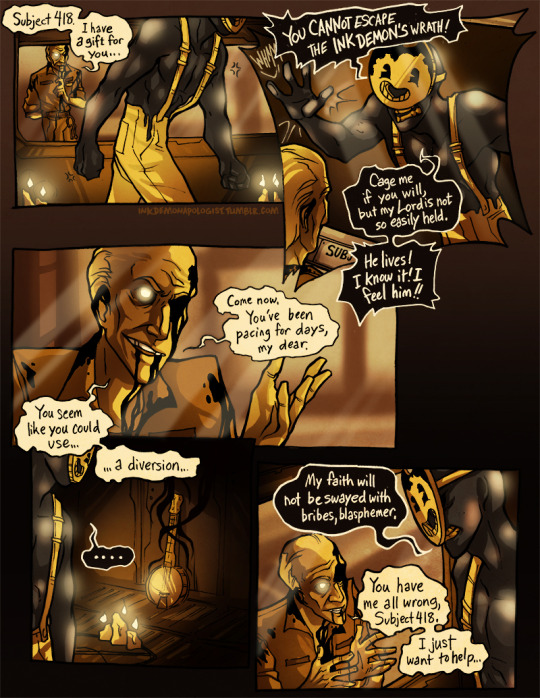
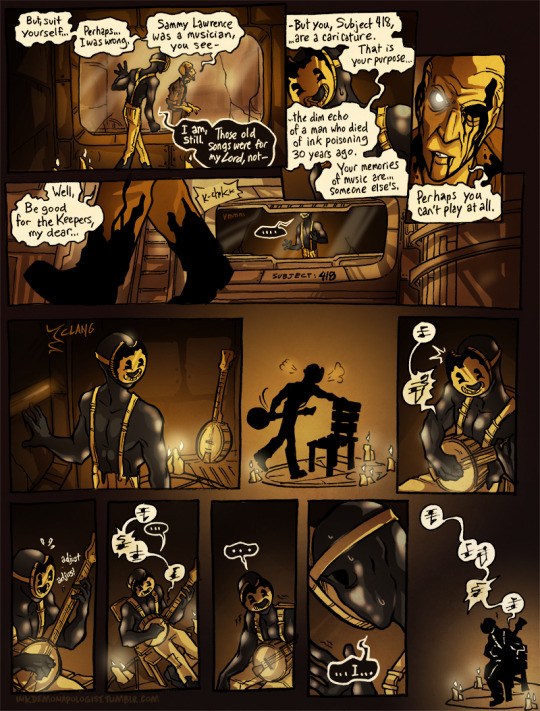
I just thought way too much about how slowly Sammy plays when you see him in the Cyclebreaker prison................
#batdr#batdr spoilers#batim#bendy and the dark revival#subject 418#sammy lawrence#when in doubt just keep drawing#iT LIKE... SOUNDED LIKE HELLFIRE FOLLIES AT FIRST#BUT VERY SLOW AND SOME NOTES WRONG#and i couldn't stop thinking about it#Sammy remembering a love of music just like Henry remembers loving Linda#but it never actually happened#wilson arch#i know wilson probably only calls audrey 'my dear' but i personally just think it would be neat if he did this to Sammy too#an ink stained nightmare forever stuck on repeat
4K notes
·
View notes
Text
rereading volume 12 and interpreted this scene differently than i have before

we know at this point that mob continues to fight because he has too much to lose if he falls. when he sees toichiro is going to explode, he rushes to warn everyone to get to safety

it's here where mob states that "[he's] right behind [them]". the darkhorse translation in particular has mob say, "i'm running away, too...!"
this version of the line specifically caught my attention, because i always read this scene as mob planning on getting everyone to safety before risking his life to contain the explosion, that his decision to stay was already made
it was seeing these panels when it dawned on me


they were getting ready to leave, then mob sees shou. standing on his own, looking into the mass of energy about to burst. this is his father
mob had already made the comparison before of how shou sees toichiro to how ristu sees mob, and then he notices this. this is someone shou failed to save, how shou was going to witness his father fall before him
i feel like it was in this moment that mob made a split second decision to stay, that he had to try. he gave his kindness to toichiro, yes, but it was seeing shou's reaction where he made his choice
#mob psycho 100#mp100#shigeo kageyama#shou suzuki#qulo talks#100#this is just an interpretation of mine but having mob and shou share this interaction i couldn't stop thinking about it
453 notes
·
View notes
